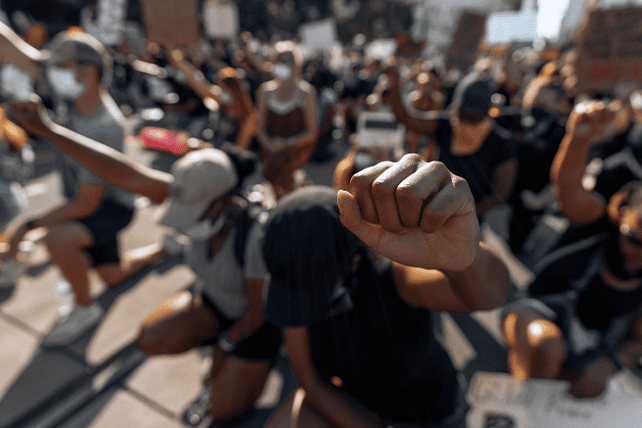The statement is interwoven with the names of African theologians such as Athanasius of Alexandria and Augustine of Hippo, and the words of scholars and activists such as W.E.B. Du Bois, Ida B. Wells, James H. Cone and Angela Davis.
Its signatories include Baptist leaders, such as the Rev. James C. Perkins and the Rev. Tisha Dixon-Williams and the Rev. Otis Moss Jr., as well as recent independent presidential candidate Cornel West and the Rev. Jeremiah Wright and the Rev. Otis Moss III, pastor emeritus and current pastor, respectively, of Chicago’s Trinity United Church of Christ.
Evans said the Black ministers’ statement, which calls for collective action by Black individuals and Black churches to support Black organizations — with an openness to cooperation with other Black faith traditions — is a necessity in the current political climate.
“In light of what’s going on, we need to reinvent our infrastructure,” said Evans, who also is director of Berkeley School of Theology’s Center for Truth, Racial Healing & Restorative Justice. “If we didn’t learn anything else from this last federal general election, (it) doesn’t look like anybody’s coming to help us. We’re going to have to help ourselves.”
Evans, whose center is set to co-host a town hall in February on “Healing through Justice: Policy Solutions through Traumatized Communities,” points as an example to the statement’s call for Black psychiatrists, psychologists and social workers to help address the mental health needs of African American communities.
“It is one of the largest challenges that is underserved, goes undernoticed,” he said.
Evans expects different aspects of the credo will be the subject of upcoming online and in-person workshops and forums.
The statement comes at a time when other Black religious leaders also are seeking next steps to respond specifically to the Trump administration’s anti-DEI stance.
The Rev. Al Sharpton announced at a rally on Inauguration Day, which coincided with Martin Luther King Jr. Day, that his National Action Network would work with others to determine two companies it plans to boycott among those that have pulled back on DEI programs. The Rev. Boise Kimber, president of the National Baptist Convention, USA, announced earlier this month that he had created an economic development committee to meet with politicians and major corporations that have been rolling back their initiatives to address diversity, equity and inclusion.
“We have to applaud Reverend Sharpton and Dr. Boise Kimber for taking that particular issue very, very seriously,” said Evans, who anticipated that collaborators on the credo will also continue working with others on that issue.
This article originally appeared here.

